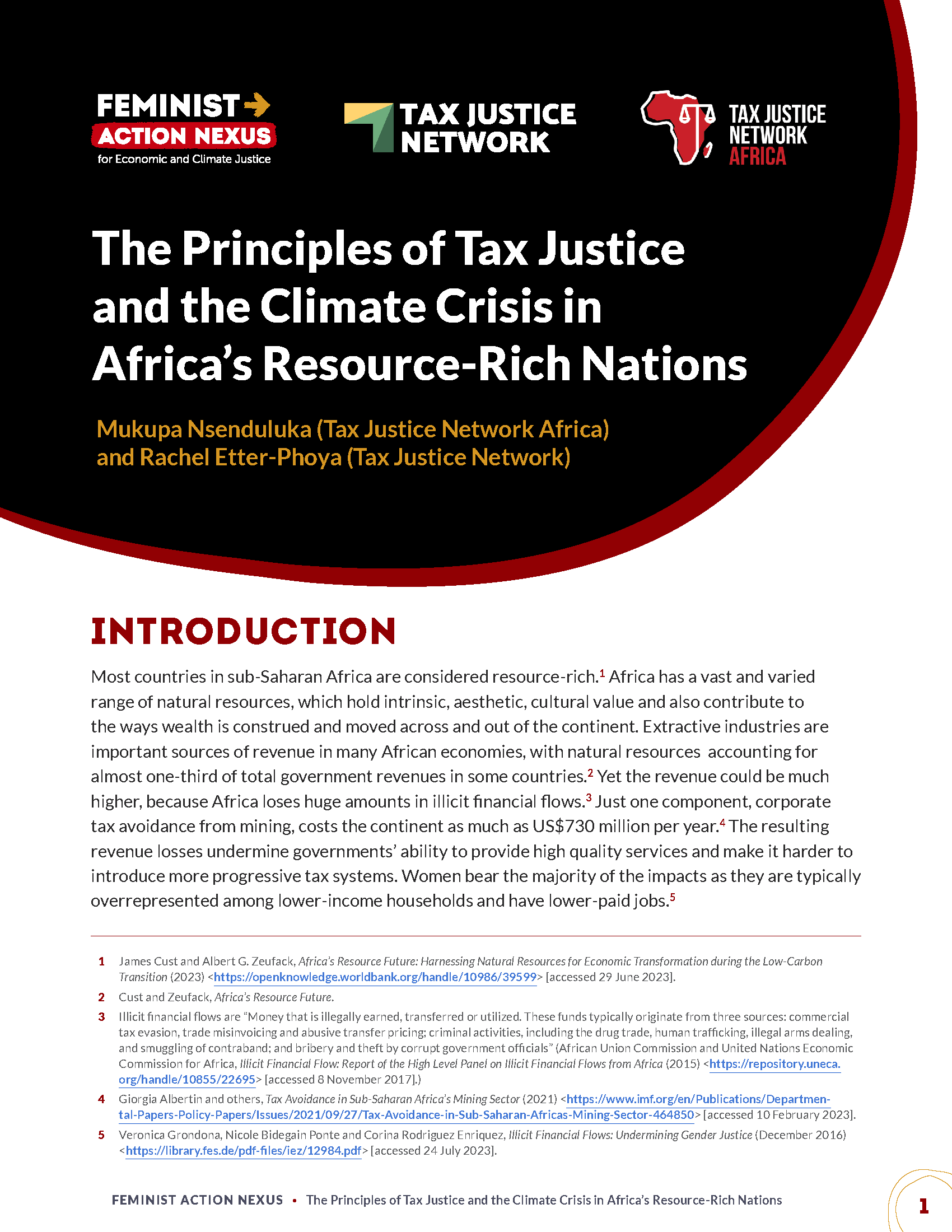Tax injustice is prominent across the world – and especially in Africa’s extractive industry. While extractive industries are important sources of revenue in many African economies, the revenue could be much higher— because Africa loses huge amounts in illicit financial flows. Just one component, corporate tax avoidance from mining, costs the continent as much as US$730 million per year.
Corporate tax abuse undermines domestic revenue mobilization efforts so that governments cannot fulfill their obligations to provide fundamental economic and social rights—for instance, the provision of clean and safe water. Communities, and women in particular, bear the brunt of a legacy of tax injustice while also facing severe climate injustice and environmental degradation brought about by the extractive industries and emissions.
As economies transition away from fossil fuels and demand grows for the metals and minerals needed for new technologies, Africa’s extractive industries will need to navigate significant changes.
In this Feminist Action Nexus brief, we explore five principles of tax justice—the “5 Rs”—as they pertain to the extractive industries in Africa’s resource-rich economies, in light of the climate crisis and with a gender lens. The functions of tax include raising revenue, redistributing wealth to create a more equal society, repricing to make activities that infringe on the rights of others more costly, improving representation by reinforcing the social contract between voters and representatives, and supporting reparations to redress historical and colonial legacies.
Read the full report in
ENGLISH | FRENCH | SPANISH
Authors: Mukupa Nsenduluka (Tax Justice Network Africa) and Rachel Etter-Phoya (Tax Justice Network)



